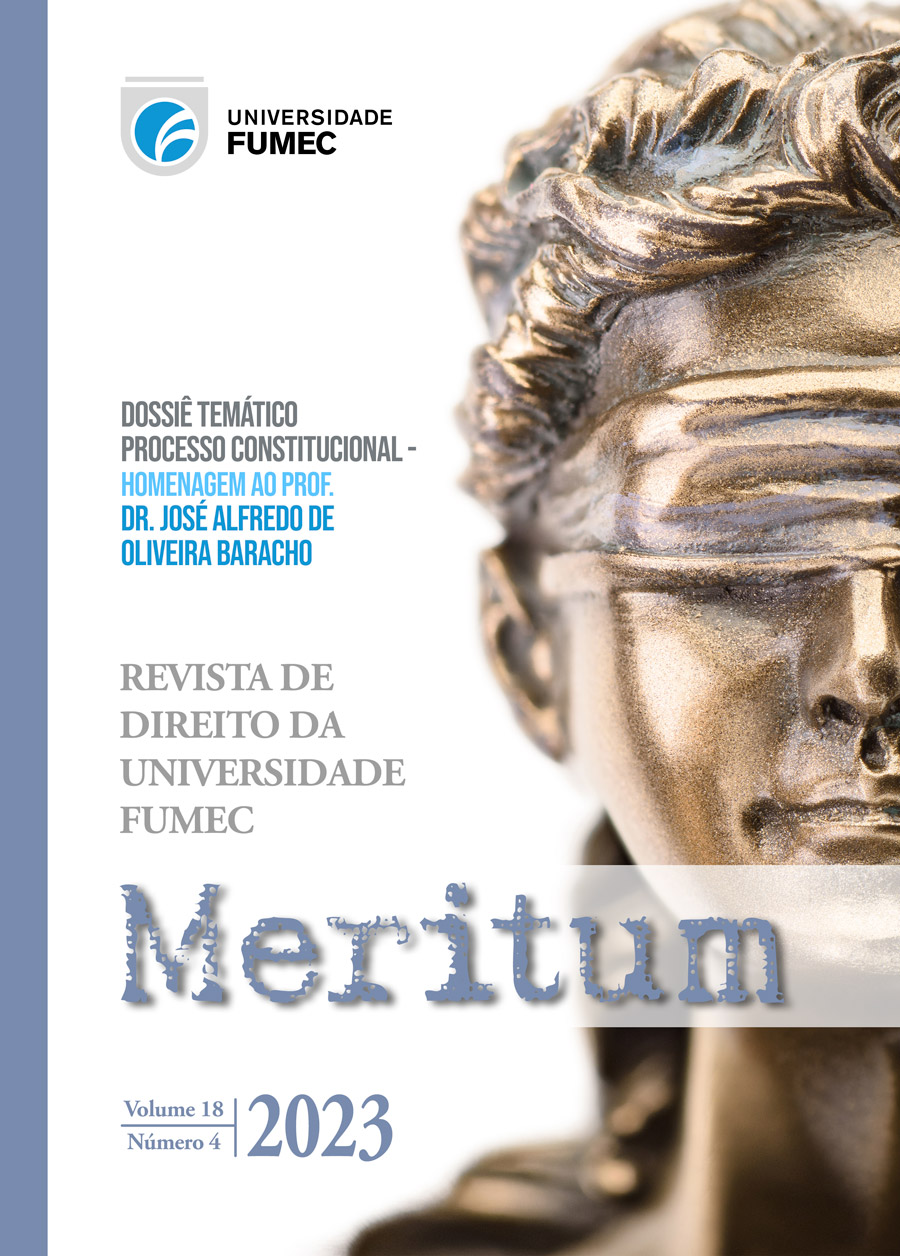APPLICATION OF THE PRINCIPLES OF CONTRADICTION AND BROAD DEFENSE IN THE POLICE INVESTIGATION
DOI:
https://doi.org/10.46560/meritum.v18i4.8864Abstract
In the police investigation, as a rule, the accused or investigated person has not yet been formally accused, but is being investigated so that this condition takes effect or not, not to mention the possibility that the procedure may serve as a basis for the adoption of serious measures, such as the decree of preventive detention, by the Judiciary. Refuting the application of the adversarial and full defense principles in the investigation phase may represent a situation of imbalance in relation to the exercise of the State's right to punish, although the adoption of certain measures must be admitted so that the criminal prosecution is not compromised, such as preserving the secrecy of an ongoing telephone intercept, for example. Finding a balance between the interests of the indicted or investigated individual and the State in the criminal procedural relationship may represent a fairer path to the realization of the Democratic Rule of Law. From this perspective, the objective of this work is to analyze the possibility or not of applying the principles of contradictory and full defense in the context of a police investigation. The methodology consists of a literature review, through the analysis of doctrine, jurisprudence and academic works, using the hypothetical-deductive method, concluding, in the end, that it is necessary to rethink the inapplicability of the contradictory and the full defense indiscriminately, considering the possibility of violating fundamental rights and guarantees in certain situations.
Downloads
Published
Issue
Section
License
Autores que publicam nesta revista concordam com os seguintes termos:
- Autores mantém os direitos autorais e concedem à revista o direito de primeira publicação, com o trabalho simultaneamente licenciado sob a Licença Creative Commons Attribution que permite o compartilhamento do trabalho com reconhecimento da autoria e publicação inicial nesta revista;
- Autores têm autorização para assumir contratos adicionais separadamente, para distribuição não-exclusiva da versão do trabalho publicada nesta revista (ex.: publicar em repositório institucional ou como capítulo de livro), com reconhecimento de autoria e publicação inicial nesta revista;
- Autores têm permissão e são estimulados a publicar e distribuir seu trabalho online (ex.: em repositórios institucionais ou na sua página pessoal) a qualquer ponto antes ou durante o processo editorial, já que isso pode gerar alterações produtivas, bem como aumentar o impacto e a citação do trabalho publicado (Veja O Efeito do Acesso Livre).






